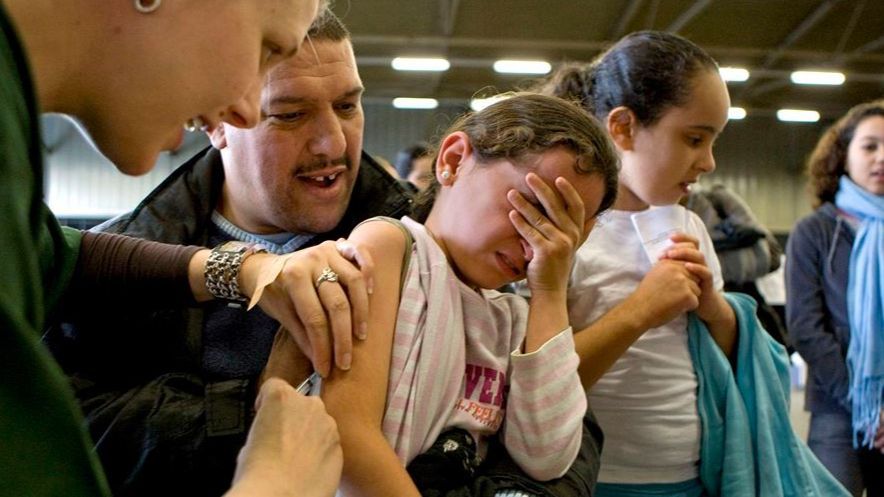WHO calls for urgent response

WHO reminds that both doses of measles vaccine should be included in the program, even suggesting catch-up vaccination.
World Health Organization (WHO) calls for a “rapid response” to measles outbreak reported in 2023causing more 58,000 cases in 41 of the 53 member states of the Europe and Central Asia region, of which almost half were notified children under 5 years old.
WHO Regional Director for Europe Dr. Hans Henri P. Kluge emphasizes that due to the high proportion of measles cases among children, “health systems in the WHO European Region have to catch up to quickly reach the 1.2 million children who have not received the vaccine against measles between 2020 and 2022 with continued immunization.
Further escalation of the “highly contagious” disease must be avoided.
“As the virus continues to spread in many parts of the Region, timely detection and response to the outbreak remains essential to prevent further escalation and ensure the region progresses towards eliminating this highly contagious disease,” details Dr. Hans Henri P. Kluge.
The latest figures for 2023 represent an increase on the previous three years and pose a risk to everyone in the Region who is not protected, according to WHO. “It is clear that continued efforts are needed to prevent further increases in measles cases in 2024,” they say.
They also warn that, given the rise in measles cases worldwide, “the risk of importation into the European Region is virtually inevitable.”
The actions of some countries with vaccination programs are highlighted.
{{ #cards }}
{{#section.link.href}} {{section.link.title}} {{/section.link.href}}
{{title.data}}
{{ /maps }}
In this sense, they emphasize that shares in Armenia, Kazakhstan, Kyrgyzstan, Romania and Tajikistanwhich vaccinated more than 2.5 million children of all ages in 2023 appears to have helped slow the spread of the virus in these countries.
“Every death from measles is a preventable tragedy because there is a safe and effective vaccine to prevent the disease,” Dr. Kluge detailed, adding that they must get ahead of “this dangerous disease.”
Coverage over 95 percent
Following the adoption of the European Immunization Program 2030, WHO indicates that all countries in the region should achieve and maintain coverage of more than 95 percent in all communities with both doses of measles vaccine, including catch-up vaccination; provide high-quality surveillance to quickly identify and isolate any potential cases; and ensure rapid outbreak response in all communities.
“The WHO Regional Office for Europe will continue to work closely with all Member States in their efforts to effectively respond to ongoing measles outbreaks,” said Robb Butler, Director of the Division of Communicable Diseases, Environment and Health at the WHO Regional Office for Europe.
Pregnant women and unvaccinated children are the highest risk groups
Measles is one of the most contagious diseases peace, is transmitted when the infected person breathes, coughs or sneezes. The virus remains active and infectious in the air or on contaminated surfaces for up to 2 hours.
Any non-immune person can become infected. A noticeable rash is the most noticeable symptom, although complications may include blindness, encephalitis, severe diarrhea and dehydration associated with ear infections and pneumonia.
For their part, “unvaccinated young children and pregnant women are at greater risk of serious complications from measles,” WHO concludes.
Follow us on our WhatsApp channel and stay updated with all the news at the moment.
Subscribe to the Informativos Telecinco newsletter and we will send you news by email.